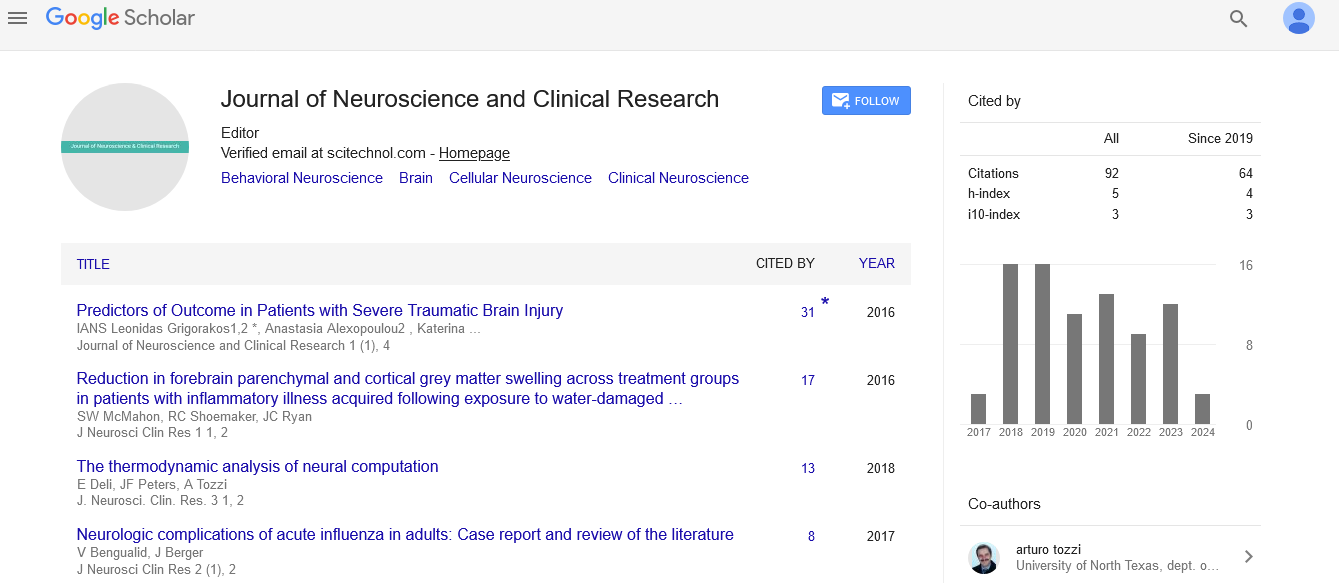Therapeutic potential of augmenting brain 2-arachidononyl glycerol in mild traumatic brain injury
Yumin Zhang
Uniformed Services University of the Health Sciences, USA
: J Neurosci Clin Res
Abstract
Mild traumatic brain injury (mTBI) is the major type of brain trauma and a risk factor for the late development of dementia and neurological diseases. Despite an increased understanding on the potential mechanisms of brain injury, there is still no effective treatment currently available. Using a repetitive mild traumatic brain injury (mTBI) mouse model, we found that treatment with MJN110, a novel inhibitor of the principal 2-arachidononyl glycerol (2-AG) hydrolytic enzyme monoacylglycerol lipase dose-dependently ameliorated the impaired locomotor function, learning and memory. Treatment with MJN110 reduced inflammatory response and normalize the expression of glutamate and GABA receptor components in the TBI mouse brain. Furthermore, treatment with MJN110 also alleviated post-traumatic headache, one of the common symptoms, by augmenting the 2-AG levels and reducing the production of calcitonin gene related peptides (CGRP) in the trigeminal system. The therapeutic effects of MJN110 were partially mediated by activation of CB1 and CB2 cannabinoid receptors and were eliminated when it was co-administered with DO34, a novel inhibitor of the 2-AG biosynthetic enzymes. Our results suggest that augmentation of the endogenous levels of 2-AG can be therapeutically useful in the treatment of TBI and its associated symptoms by suppressing neuroinflammation and normalizing neurotransmission.
Biography
Dr. Yumin Zhang is Professor in the Department of Anatomy, Physiology and Genetics and the Department of Neuroscience at the Uniformed Services University of the Health Sciences in Bethesda, Maryland. The major research interest in Dr. Zhang’s lab is to study neuron-glia interaction in culture and the animal models of several neurological diseases, including traumatic brain injury, neuropathic pain and multiple sclerosis. In particular, Dr. Zhang’s lab is using pharmacological, biochemical, behavioral and genetic approaches to elucidate how modulation of the endocannabinoid system impacts the pathogenesis of neurological diseases.
 Spanish
Spanish  Chinese
Chinese  Russian
Russian  German
German  French
French  Japanese
Japanese  Portuguese
Portuguese  Hindi
Hindi 